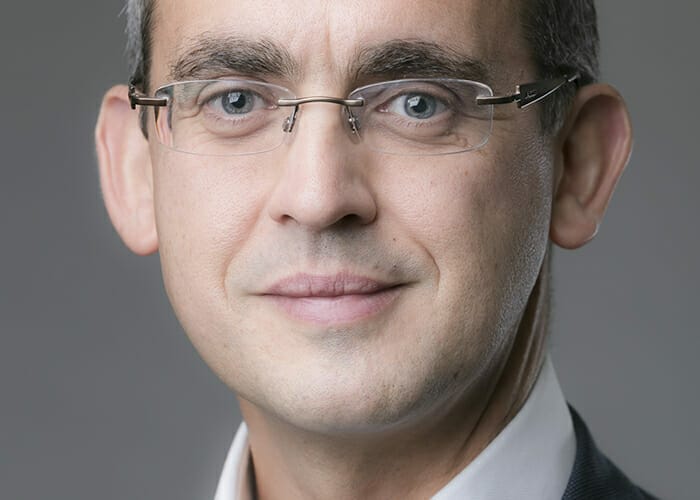Almost a year ago I wrote a piece titled Phase down or phase-out: Is there a difference? where I concluded that “phase out is a choice to save the living planet, while phase down is an attempt to save our unsustainable way of life”. I presume you will have noticed that this language has consumed a lot of column inches over the last two weeks at COP28.
Much could be written about COP28 – from its size (around three times more attendees than previous record), to the controversies (the president also being the head of a state-owned oil company, or the large number of fossil fuel lobbyists in attendance), to its wide scope (health and food have been notable focuses), to its successes (loss and damage fund launched on day-1). However, a sizable group of people have gone on record to state that only one thing matters as far as COP28 is concerned: whether or not the closing statement included the words “phase out of fossil fuels”.
We now know the outcome of COP28 and the first global stocktake. The language has shifted, and there is now a unanimous agreement to transition away from all fossil fuels to reach net zero emissions by 2050. Where does that leave us, and what happens now?
It would seem that we should bet on a continuation of the status quo, at least over the short-term. Investment organisations already have their net-zero investment strategies, so no need for significant change. However, all fossil fuel producers will still be seeking to maximise their income, so they will still be pumping. And politicians will likely still be driven by short-term incentives. Therefore, each of us should add a new belief to our set. Do we believe that the push for eliminating fossil fuels was a passing anomaly, killed off by the new language of ‘transitioning away’? Or is it a groundswell of understanding – that the pumping needs to stop, and sooner rather than later – that will eventually get its way? These have different implications. The latter would require us to plan for what eliminating fossil fuels actually means.
I would like to explore what elimination means by starting somewhat abstract. There is a significant difference between a natural transition and a forced transition. Natural transitions are what complex adaptive systems do. We used to use candles for lighting, now we use them for decoration. We have been through several transitions in the energy system through history. They take around 100 to 150 years to complete. While I am labelling these transitions as ‘natural’, they are not disruption, or pain, free. Individuals can still find themselves victims of involuntary unemployment, and find that their knowledge and experience is a stranded asset.
If we assume that the transition to renewable energy started, say, 40 years ago (solar panels were an expensive joke back then) then in 60 to 90 years we should be pretty much done. Renewables are cheaper and cleaner, so will grow as a proportion of energy used. As for the candles, we may choose to retain fossil fuels at the margin, perhaps for long-haul flights.
The problem, of course, is that the climate scientists are insistent we have already produced too many cumulative emissions, and there are other thresholds (eg planetary boundaries) we have crossed. The natural transition path will breach the small remaining carbon budget, with severe consequences for the Earth’s natural systems. Hence the need for a forced transition, of which ‘net-zero by 2050’ is an example. We are attempting to force the system to a place, or a timescale, that it wouldn’t get to on its own. As a tiny example, in the UK we were going to be forced to buy only electric vehicles in 2030 – currently weakened to 2035. It is reasonable to assume that a forced transition will be more disruptive (painful) than a natural transition. It follows that the social goal (decarbonisation) has been deemed more important than the pain and disruption that will be caused by the implementation.
This abstract treatment allows us to see clearly that elimination has nothing to do with profit, or return, maximisation. It is an entirely separate social goal. A goal that will have massive ramifications for the economy, finance and investment portfolios:
- Volatility, in the real economy and in markets, is likely to be meaningfully higher
- Political interventions are likely to increase in frequency, scope and impact
- Together, the above points suggest uncertainty will go way up (ie forecasting will be more difficult / less accurate) potentially creating a reinforcing feedback loop
- Eventually, the market will price in climate risk
- Eventually, we will come to realise that we are not talking about a gentle transition of the energy system but a wrenching transformation of all aspects of life – yes, economic, but also food, water, health, justice etc.
All very interesting, but post-COP we are newly on a ’transition away’ journey so can we ignore all that I have written above? I don’t think so. I think transition away is a higher-emissions pathway, so I would invite you to replace the first bullet with ‘higher, and non-linear, volatility in Earth systems’. The following bullets we can probably leave as they are.
The language has changed as a result of the COP, but in essence we are still debating ‘down vs out’. The investment industry needs to decide whether the transition away will be too little, too late and we breach the net zero by 2050 part. Or whether we will truly be net zero by 2050, with all the associated transformational consequences. It is time for us to get really good at intertemporal risk management.
Tim Hodgson is head of research and founder of the Thinking Ahead Institute.



